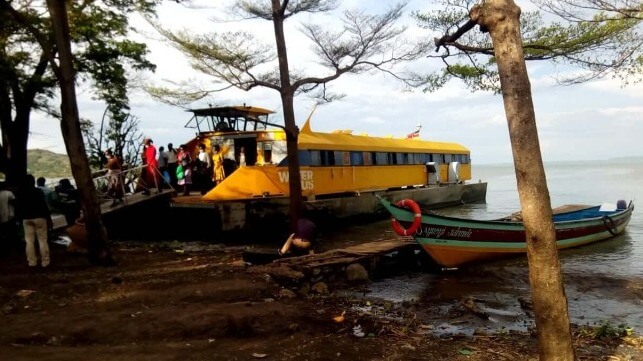Kenyan Firm Receives Funding to Expand Safety-Critical Ferry Services

Kenyan firm Globology Ltd intends to scale up provision of waterbus passenger transport services on Lake Victoria in order to help reduce the fatalities that occur annually due to dependence on old ferries, boats and canoes.
Globology has received a $3.8 million equity funding from impact investor InfraCo Africa to finance the construction of five new ferries for passenger and goods transportation across Kenya, Tanzania and Uganda, the three East Africa nations that share Lake Victoria's waters. The ferries will be delivered over the next 24-36 months.
The financing will also enable the company to pay for upgrades for its existing boatyard, which is located in Kisumu, Kenya.
InfraCo Africa provides equity to fund the development and construction of pioneering projects. It is part of the Private Infrastructure Development Group, a multi-donor organization established in 2002. Shell Foundation has also provided Globology with an $800,000 grant to pilot retrofitting of a solar boost system to two of its vessels, which is expected to reduce fuel consumption by around 15 percent.
“We are excited to have the opportunity to grow the reach of the waterbus service and expand our journey to save lives and facilitate development of Africa’s transportation-challenged communities,” said Malcolm Ormiston, Globology Founder.
Globology, which popularly goes by the name Waterbus, is the first passenger-focused service to deliver scheduled ferry routes on Lake Victoria. It currently operate two 132-seater and one 80 seater modern catamaran vessels for passengers and light cargo.
Lake Victoria is the world’s second-biggest freshwater body and the largest in Africa. It is also the largest inland fishery in the world, supporting over 40 million inhabitants according to the World Bank. It is a source of livelihood for millions and generates over $500 million in revenues annually.
However, the lake is considered one of the most dangerous water bodies due to the number of deaths recorded every year. It is estimated that about 5,000 people die on the lake annually from ferry, boat and canoes accidents. In September 2018, for instance, a total of 136 people died in one of the worst ferry disasters on the Tanzanian side of the lake.

that matters most
Get the latest maritime news delivered to your inbox daily.
Lack of proper transportation services means that access to transport between Lake Victoria’s mainland and island communities is limited, with passengers largely reliant upon open wooden canoes with polluting two-stroke petrol outboard motors. Lake Victoria is home to more than 80 islands, and their inhabitants need transport to access key services and bring their produce to markets.
According to InfraCo, the unscheduled canoes are inherently unsafe, slow and lack shelter, so passengers are exposed to the elements and goods and fresh produce are vulnerable to spoilage. Violent, fast-moving storms can capsize open canoes, which have few - if any - safety measures in place for their passengers.
